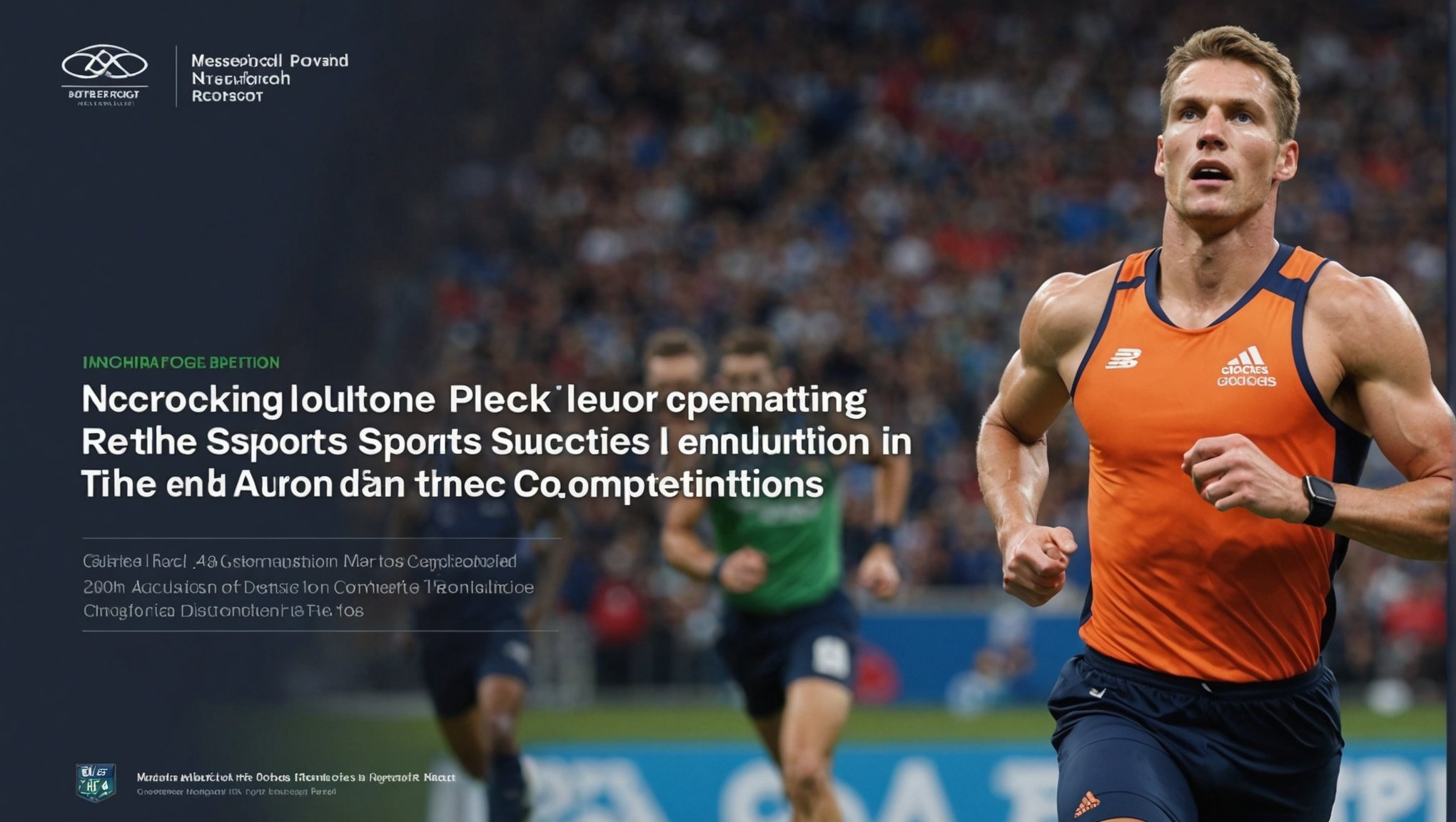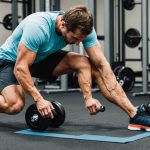Unlocking Peak Performance: The Role of Sports Nutrition in Athlete Success During Competitions
When it comes to achieving peak performance in sports, athletes often focus on intense training and meticulous technique, but one crucial aspect that can make all the difference is sports nutrition. Proper nutrition is not just about fueling the body; it’s about optimizing every aspect of an athlete’s performance, from energy levels and muscle repair to recovery and overall health.
Understanding the Basics of Sports Nutrition
Sports nutrition is a complex field that involves more than just eating the right foods at the right times. It requires a deep understanding of how different nutrients interact with the body during physical activity.
Also read : Essential Core Exercises for Cyclists: Injury Prevention Tips You Need to Know
Key Nutrients for Athletes
Athletes need a balanced diet that includes several key nutrients to support their training and performance.
-
Carbohydrates: These are the primary source of energy for athletes. Carbs help replenish glycogen stores, which are depleted during high-intensity exercise. Foods like whole grains, fruits, and vegetables are rich in carbohydrates.
Have you seen this : Mastering Mental Resilience: Athletes” Guide to Leveraging Sports Psychology for Success in International Competitions
-
Protein: Essential for muscle repair and growth, protein should be consumed both before and after workouts. High-quality protein sources include lean meats, fish, eggs, and dairy products. For example, milk proteins like whey and casein are highly effective in supporting muscle protein synthesis.
-
Fat: While often overlooked, healthy fats are crucial for providing long-lasting energy and aiding in the absorption of fat-soluble vitamins. Avocados, nuts, seeds, and olive oil are excellent sources of healthy fats.
-
Vitamins and Minerals: These micronutrients are vital for overall health and performance. B vitamins, found in whole grains, eggs, and leafy greens, play a significant role in energy production. Minerals like iron and magnesium are important for oxygen transport and muscle function.
Hydration: The Unsung Hero
Proper hydration is often the most neglected aspect of sports nutrition, yet it is critical for optimal performance. Dehydration can lead to decreased endurance, muscle cramps, and impaired cognitive function. Athletes should drink water throughout the day and continue hydrating during and after their training sessions.
Hydration Tips for Athletes:
- Drink water regularly throughout the day.
- Monitor urine color; it should be pale yellow.
- Use sports drinks that contain electrolytes during high-intensity or long-duration activities.
- Avoid sugary drinks that can dehydrate the body further.
Pre-Workout Nutrition: Fueling for Success
The food you eat before a workout can significantly impact your performance. Here’s how to fuel up correctly:
Timing is Everything
Eating the right foods at the right time is crucial. Aim to eat a balanced meal that includes carbohydrates, protein, and healthy fats 1-3 hours before your workout. For example, a meal of whole grain toast with avocado and eggs provides sustained energy and supports muscle function.
Sample Pre-Workout Meal
Here’s an example of a pre-workout meal that can help athletes prepare for their training sessions:
| Food Item | Nutrient Benefit |
|---|---|
| Whole Grain Toast | Complex carbohydrates for sustained energy |
| Avocado | Healthy fats for long-lasting energy and vitamin absorption |
| Eggs | High-quality protein to protect against muscle breakdown |
| Banana | Quick-digesting carbohydrates for immediate energy |
| Almond Butter | Healthy fats and protein for additional energy and muscle support |
Post-Workout Recovery: Replenishing and Repairing Muscles
After an intense workout, the body needs proper nutrition to recover and repair muscles. Here’s what athletes should focus on:
Protein and Carbohydrates
Consuming protein within 30 minutes to an hour after a workout can enhance recovery by repairing damaged muscle fibers and promoting muscle growth. Carbohydrates help replenish glycogen stores, which are depleted during exercise. Opt for fast-digesting carbs like fruits, rice cakes, or a sports drink to kickstart the recovery process.
Rehydration
Rehydrating after a workout is as important as hydrating before. Aim to drink water or a sports drink that contains electrolytes to replace any fluids lost through sweat. This helps in restoring the body’s fluid balance and supports overall recovery.
Post-Workout Recovery Tips:
- Consume protein within 30-60 minutes after the workout.
- Include fast-digesting carbohydrates to replenish glycogen stores.
- Rehydrate with water or a sports drink containing electrolytes.
- Avoid sugary drinks that can hinder recovery.
The Role of Supplements in Sports Nutrition
While a well-balanced diet should always be the primary focus, supplements can play a supportive role in enhancing athletic performance.
Effective Supplements
Not all supplements are created equal. Here are some that have been consistently supported by research:
- Whey Protein: Helps in muscle protein synthesis and is particularly effective when consumed post-workout.
- Creatine: Supports meaningful adaptations to exercise by increasing muscle strength and endurance.
Food First, Supplements After
Athletes should always prioritize their normal diet over supplements. Supplements should be seen as a means to provide benefits that a fully optimized normal diet cannot. As a sports nutritionist might advise, “You’ll find more success by optimizing your normal diet first and ignoring supplements than optimizing supplements and ignoring your normal diet”.
Personalized Nutrition Plans: Tailoring to Individual Needs
Every athlete is unique, with different nutritional needs based on their sport, training phase, and individual health status.
Body Composition Analysis
Understanding body composition is crucial for creating effective training programs. Advanced tools like body composition analysis can help athletes identify areas of strength and weakness, such as high levels of visceral fat, which can impact performance and recovery.
Mobility and Movement Analysis
Mobility and movement analysis can provide insights into an athlete’s flexibility and strength, helping to target specific areas for improvement. This can be particularly beneficial in preventing injuries and enhancing overall performance.
Mental Health and Sleep: Often Overlooked but Crucial
While nutrition and training are critical, mental health and sleep are equally important for peak athletic performance.
Mental Resilience
Athletes often face immense pressure to perform, which can take a toll on their mental health. Programs that focus on mental resilience, such as stress management and positive thinking, can help athletes maintain a healthy mental state and perform better under pressure.
The Importance of Sleep
Sleep is essential for recovery and muscle repair. Athletes should aim for 7-9 hours of sleep each night to ensure their bodies are fully recovered and ready for the next day’s training. Poor sleep can lead to decreased performance, increased risk of injury, and impaired cognitive function.
Practical Insights and Actionable Advice
Here are some practical tips and advice for athletes looking to optimize their sports nutrition:
Sample Meal Plan
Here’s a sample meal plan for an athlete preparing for a high-intensity training session:
Breakfast:
- Oatmeal with banana, almond butter, and a splash of milk
- 1 cup mixed berries
Pre-Workout Snack:
- Whole grain toast with avocado and eggs
- 1 cup mixed nuts
Post-Workout Snack:
- Greek yogurt with honey and mixed berries
- 1 scoop whey protein
Dinner:
- Grilled chicken with quinoa and steamed vegetables
- 1 cup mixed greens salad with olive oil and vinegar dressing
Tracking and Analyzing Fitness
Using advanced tools like VO2 max testing and metabolic testing can provide athletes with clear insights into their cardiovascular fitness and areas for improvement. This data-driven approach can help athletes tailor their training programs to their specific needs, leading to more effective and efficient training.: Fueling Your Way to Success
Nutrition is a critical component of athletic success, and understanding its role can make all the difference in achieving peak performance. By focusing on pre-workout nutrition, post-workout recovery, personalized nutrition plans, and often overlooked aspects like mental health and sleep, athletes can unlock their full potential.
As any sports nutritionist would advise, “Fueling yourself properly will not only improve your endurance but also enhance your overall strength and power. Take charge of your nutrition and watch as you unleash peak performance in your sport.” Remember, every training session is an opportunity to showcase not only skill but also the power of proper nutrition.
Key Takeaways:
- Prioritize a balanced diet rich in carbohydrates, protein, and healthy fats.
- Hydrate properly before, during, and after workouts.
- Use supplements judiciously, focusing on food first.
- Tailor your nutrition plan to your individual needs and training phase.
- Don’t neglect mental health and sleep; they are crucial for peak performance.











